
When Do Plums Bloom A Seasonal Guide )
Water. Plum trees don't need water often. However, they need to get soaked through when you do. The roots grow deep, so you will need to give this tree up to 8 gallons of water once it is full-grown. Typically, this can be done every 10 to 14 days, depending on how dry the weather is. Less if it has been raining.

When Do Plums Bloom Green Packs
A good location for a plum tree is a northern exposure that stays cooler longer in spring and encourages late bloom. How to plant a plum tree.. Also, in spring, feed trees with an all-purpose (10-10-10) fertilizer; do this before fruit sets. Do not fertilize plum trees between fruit set and harvest. If tree growth is slow test the soil for.
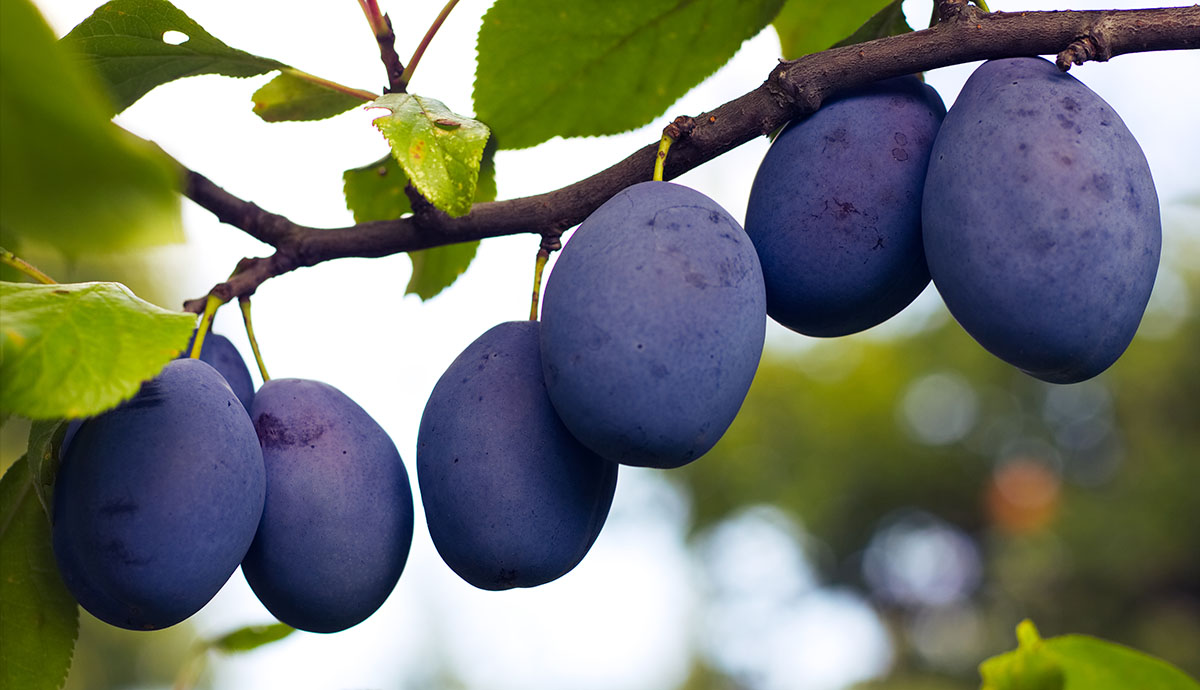
2018 The colour purple do plums pack a positive punch for better
Botanical Name: Prunus domestica Common Name: Plum Tree Family: Rosaceae Plant Type: Deciduous Tree Hardiness Zones: 4 to 9 (USDA) Sun Exposure: Full Sun Soil Type: Well-drained, loamy soil Soil pH: 6.0-7.0 (Slightly acidic to neutral) Maturity: 2 to 5 years Height: 10 to 20 feet Spacing: 12 to 20 feet apart Bloom Time: Spring Flower Color: White to pink
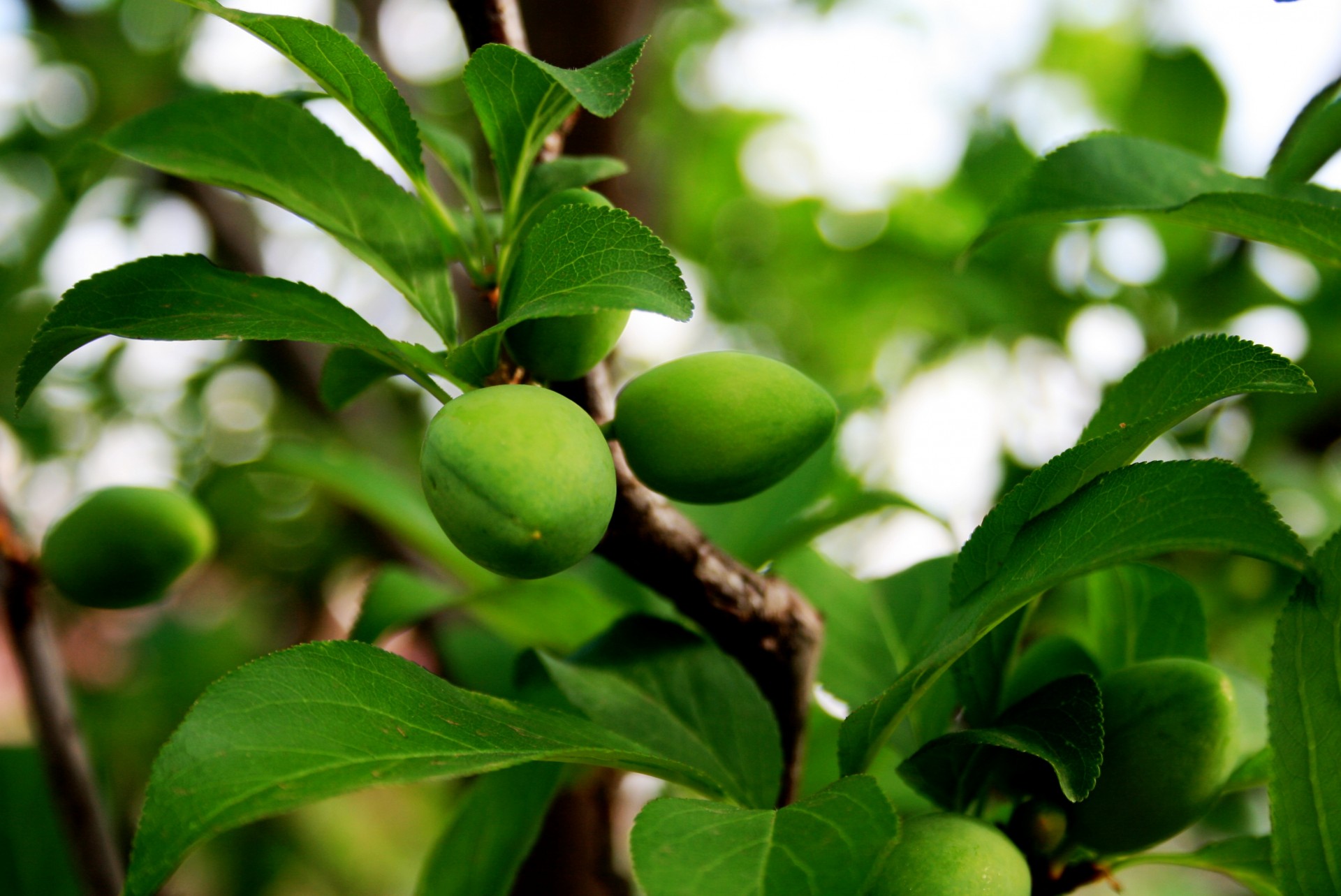
Young Plums Free Stock Photo Public Domain Pictures
No, plums do not bloom the first year they are planted. Typically, plum trees take about 3-6 years to mature enough to produce flowers and subsequently, fruit. The exact time can vary based on the specific variety of plum and growing conditions. It's important to provide your plum tree with proper care, including adequate water, sunlight, and.
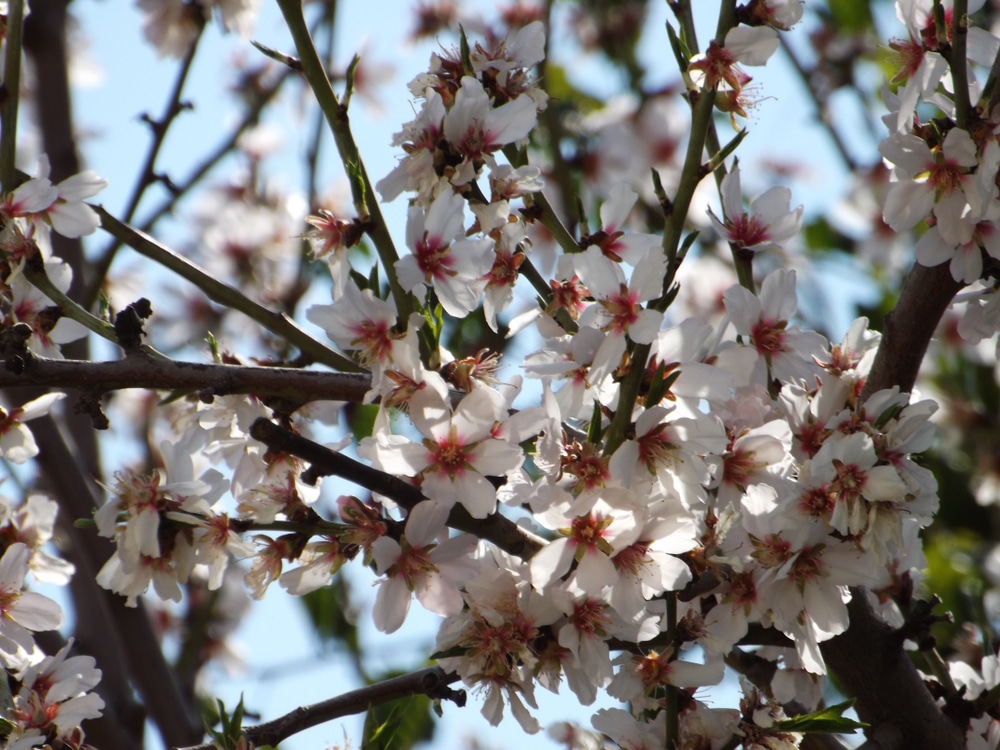
When Do Plum Trees Bloom? » Top Facts
North America has its own native plums, of course. Native to northeastern shorelines beach plum (Prunus maritima) shrubs burst into a froth of white bloom in early spring. The sprawling shrubs are very hardy and also more drought tolerant than most plum species. Their purple, cherry-size fruit ripens in early fall. Hardy from USDA zones 3 to 7.
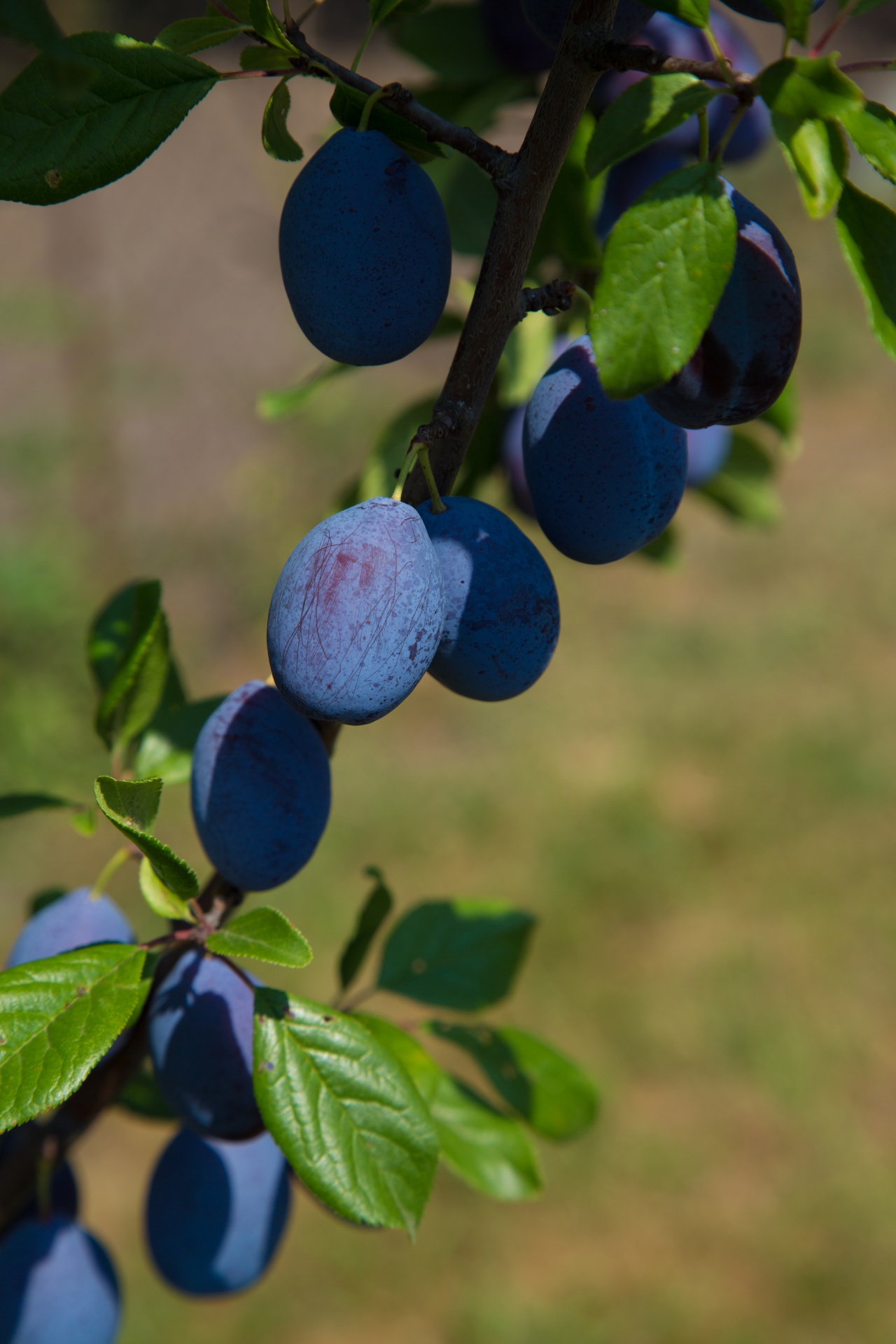
Ripe Plums Free Stock Photo Public Domain Pictures
The fruit is on the smaller size but the taste is exquisite. The skin is a yellow/red blush with juicy and sweet yellow flesh. It's a true freestone, meaning the flesh doesn't cling to the pit, which makes things easy during canning season. It has a long bloom time which makes it a good pollinator for other hybrid plums. Does well in zones 3-8.

How Long Does it Take for Plums to Grow? ChowTray
Harvesting. If the growing conditions do not drop below 28 degrees Fahrenheit, the tree has the possibility of producing fruits. It's important that any fruit is fully ripened on the tree in advance of harvesting. It takes around three months to see mature fruit after you see fully open flowers.

Prune Plum Tree Information On When And How To Trim Plums
How to Plant a Plum Tree. Space standard-size trees 20 to 25 feet apart and dwarf trees 10 to 15 feet apart. Set bare-root trees atop a small mound of soil in the center of the planting hole, and spread the roots down and away without unduly bending them. To prepare a container-grown tree for planting, remove the tree from its pot and get rid.
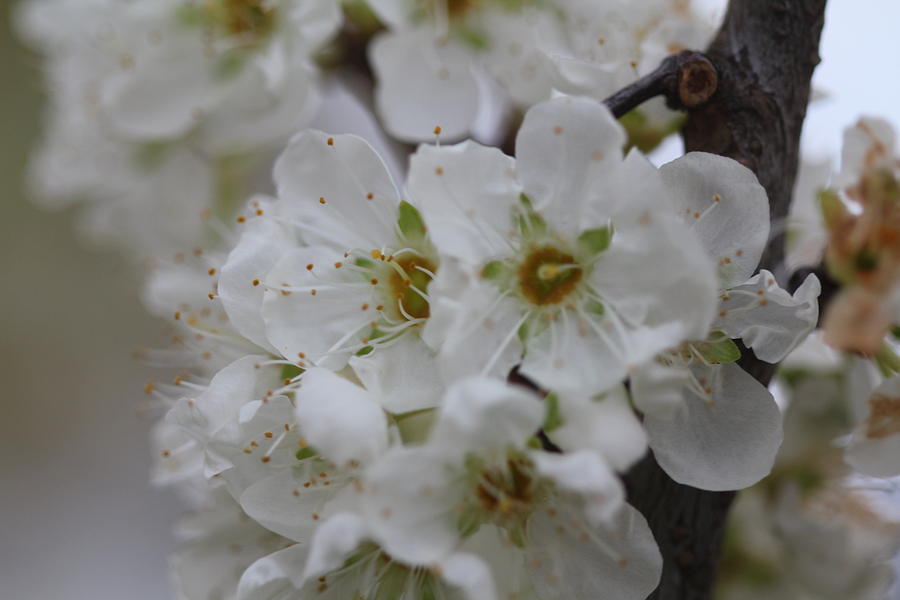
Plums in Bloom Photograph by Ashley Hunt Fine Art America
Plum trees prefer soil with pH between 5.5 and 6.5. Soil should be sandy, loamy, and well-draining. Properly draining soil is vital, since too much accumulated moisture can drown the roots of your fruit tree, increasing the risk of fungal infection. Light. Plum trees prefer to grow in full sun. Partial sun will do, but the more light the better.
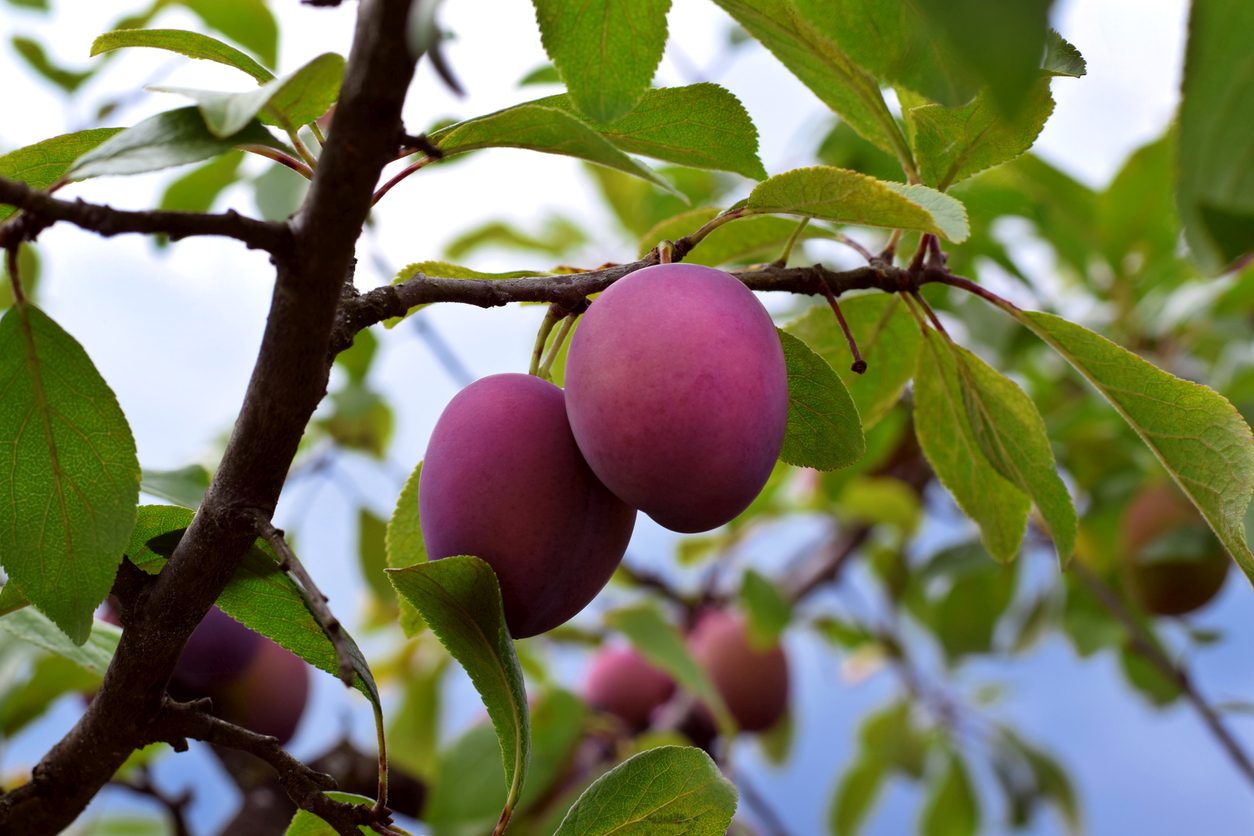
Plum Tree Care How To Grow And Care For The Plum Tree
Plum trees typically bloom in early spring, often in March or April, depending on the local climate and specific plum variety. These timing can vary due to different weather conditions. The blossoming of the tree is a spectacular sight, with flowers ranging from white to a deep pink. Read more When Does Celosia Bloom: A Seasonal Guide.

When Do Plums Bloom Green Packs
Temperature is another factor that can affect when or if plums will bloom. Plum trees need at least 500 to 1000 hours of chill time before they will begin to put on fruit. If you live in hardiness zones 5 to 9, you will have enough cool temperatures to produce plums. Zone 6 is perfect for growing many types of fruit trees including plums.
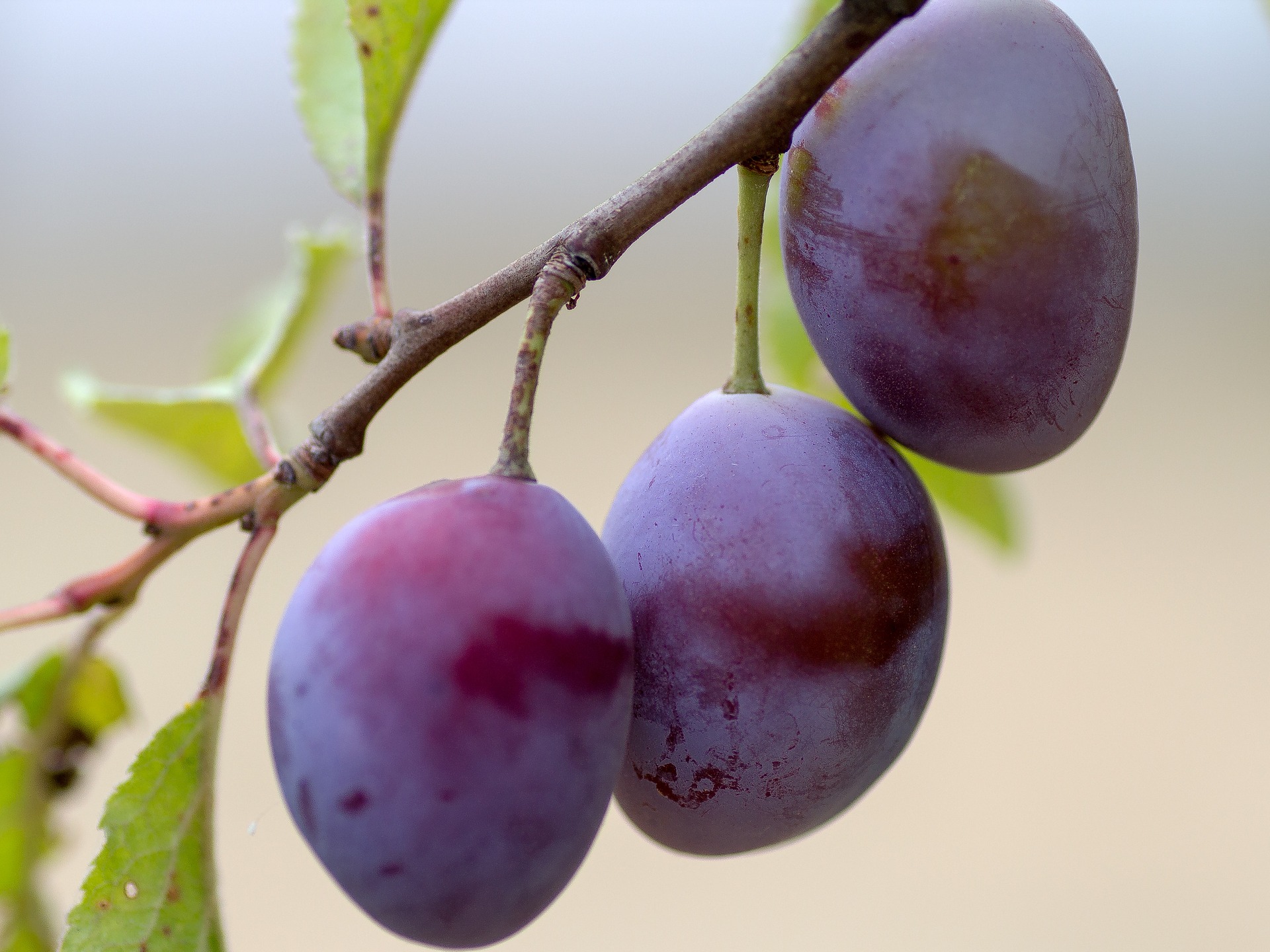
Plums Planting, Growing, and Harvesting Plums The Old Farmer's Almanac
Putting a plum tree in a shady area can prevent growth and even kill the tree. Keep plum trees away from the shady sides of houses and out of the shade of other trees. Santa Rosas also prefers a soil Ph of 4.5 to 7.5. To achieve this, gardeners can use nitrogen fertilizer, irrigating directly after fertilizing.
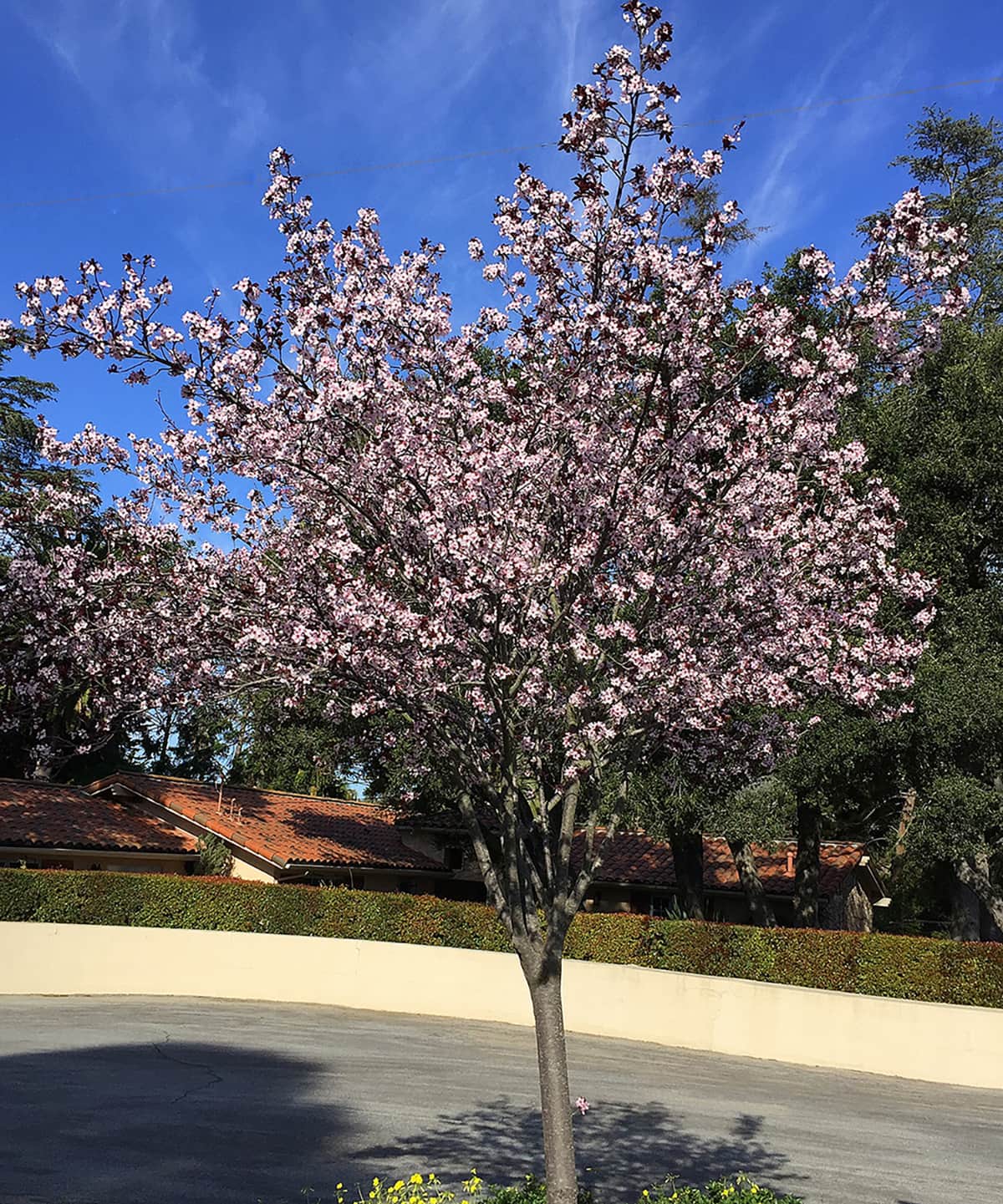
PurpleLeaf Flowering Plum Santa Barbara Beautiful
If you'd like to grow plum blossom from seeds—acquired from ripened fruit or a nursery, here's how to do it: Fill a plastic bag with moistened sphagnum moss and sand (1:1 ratio). Bury the seeds inside the filler material. Stratify the seeds by placing the bag inside a refrigerator for about three months.

How To Grow, Care and Harvesting Plum Trees in Backyard growing
Plum trees do not bloom each year since most of them require 3-6 years to mature after planting. But dwarf varieties may begin to bear fruits one year sooner than standard plum tree varieties. Some problems such as over-pruning the branches, over-fertilizing the trees, and frost injury of flowers may delay a plum tree's bloom by at least one.
:max_bytes(150000):strip_icc()/Simply-Recipes-Plum-Guide--LEAD-7-d738bebb5785456280174b158dfc98a6.jpg)
Plums Varieties, Season, and Picking the Best
The period of cold, which is sometimes referred to as 'chill' hours, is the number of hours the tree is exposed to temperatures below 7 ° C (45 ° F). European Plum varieties generally require between 700 and 1,000 chill hours whereas Japanese Plum varieties require 500 to 700 chill hours. To estimate the number of chill hours take the.
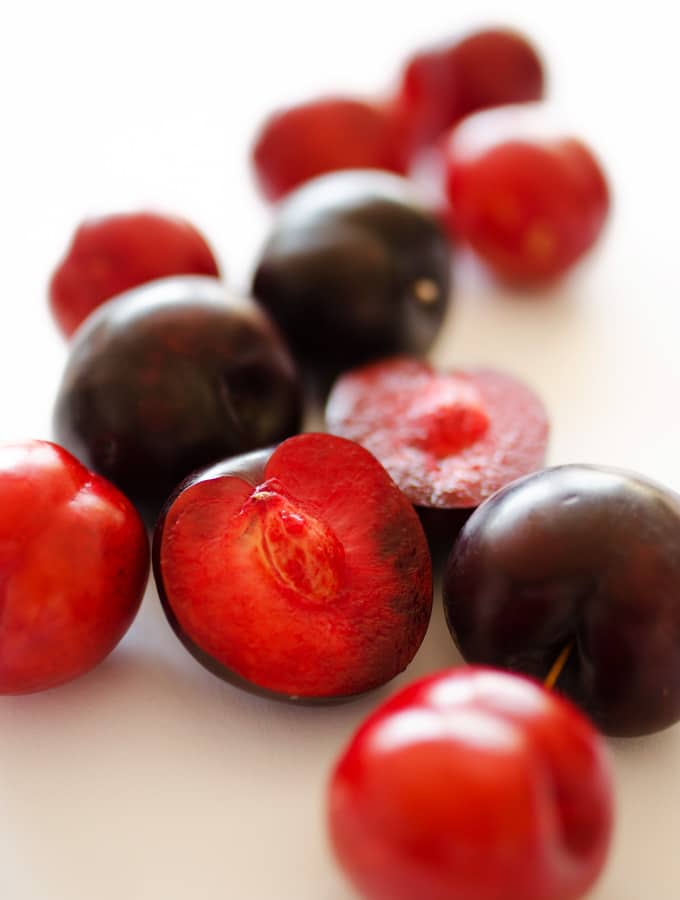
Plum 101 Everything You Need To Know About Plums
A Satsuma Plum is a Japanese variety of tree that produce juicy fruit that you can eat right from the tree. Although the name suggests that this variety is from Japan, it originated in China. Japan is included in the name of the Satsuma Plum tree because it was introduced to America by Japan. Many people choose to plant and grow Satsuma plums.